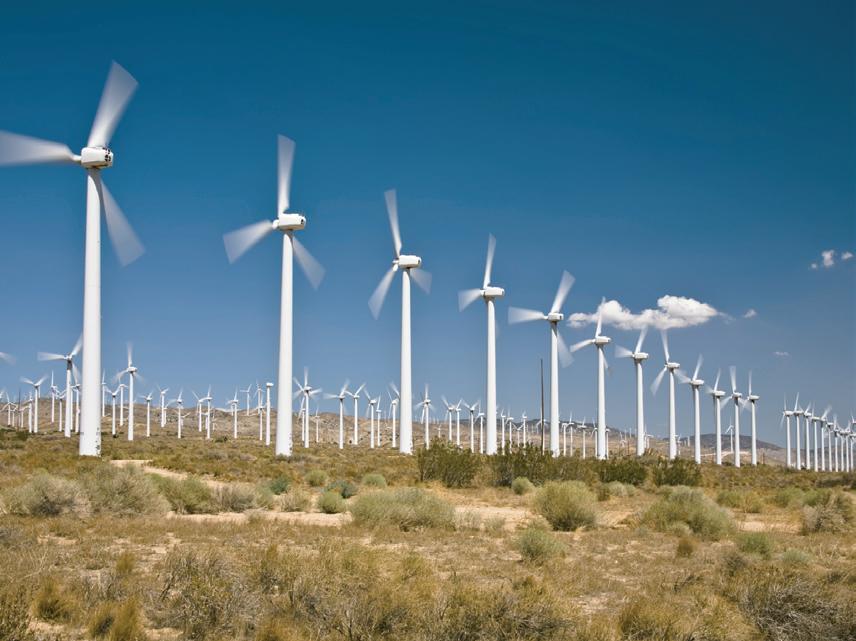
7 minute read
8 In Brief
Protect water bodies, Kenya Government urged
By Ben onyasimi
Advertisement
ANon Governmental He said concerted efforts were Organization, necessary for combating extreme Multy-Touch indicators of past breakdown International in policy formulations and (MTI) has challenged the implementations, leading to government to formulate draught, hunger and eventual necessary policies to protect death of both humans and Kenya’s water bodies animals. from deleterious economic practices that do not regard He said global communities river bank protection. have a collective responsibility in conserving and enhancing The organization said should the environment at all costs, as the government fail to act it’s a requirement for the well climate change and increased being of all. water demand in future will present a challenge to the MTI boss further observed that country as it will lead to in Kenya, where little of the frequent conflicts. country’s folks hydro- power potential has been developed, MTI representative Daniel climate change simulations for Muturi said there was an urgent the seven folks hydro-electric need for relevant government scheme on the Tana River has institutions to enforce policies projected a significant reduction to protect Kenya’s water in the river flows and declining bodies among them lakes and power production. rivers as a means of fighting extreme poverty especially in He said there was need for the rural areas. government to work hand in hand with relevant stakeholders He said Kenya like many to slow-down siltation of sevenAfrican countries was mourning folk dams that were very the loss of many lives due to a imperative for hydro- electric number of factors like the power generation in Kenya as deadly HIV virus, poverty, well as the conservation of water drought and malaria among aquifers. other things. He said MTI was currently These factors, he further designing projects that will noted contributed to Kenya’s bring about environmental dreadfully low life expectancy rehabilitation and protection rate of 47 years, one of the and at the same time empower lowest in the world. communities and citizens through a multi-disciplinary approach to Speaking in Nairobi at a environmental conservation. function where he distributed tree seedlings, Muturi Multy-Touch International observed that Kenya like most (MTI) is a Non Governmental developing countries was Organization (NGO) registered experiencing serious depletion of its natural resources, leading to environmental degradation like pollution of rivers, water in Nairobi, Kenya. Its foundation is geared towards assisting the Kenyan population to identify logging and salinity. This, and utilize available natural he said has led to increment resources and raising awareness of water borne human and of environmental conservation■ livestock diseases.
Nature Uganda marks 100 years
Nature Uganda, a branch of the East Africa National History Society (EANHS) in Uganda, recently celebrated 100 years of existence, making it the oldest conservation agency in the country.
The society was formed in 1909 by scientists, naturalists, professional hunters and other groups with interest in nature living in the then British East Africa (presently Kenya and Uganda) .Their main objective was documentation of wildlife diversity.
Today, Nature Uganda is a member-based organization that actively participates in the study of nature and implementation of conservation activities. The organization delivers its conservation activities through advocacy for conservation, monitoring important sites, environmental education, action and management, among others. Achilles Byaruhanga, the Executive Director, says although the agency has celebrated 100 years, the political instability of the 1970s and 1980s held back progress.
He said a key achievement of the agency has been the identification of Important Bird Areas as key conservation areas in the country. Nature Uganda has been and still is at the forefront of wetland conservation in the country with the number of Ramsar Sites increasing to 10 from two in 1989■
Weaver bird at Ngamba Island Lake Victoria
DR Congo, Uganda in power deal
Uganda and the Democratic Republic of Congo will soon share electricity following the endorsement of an energy exchange project by presidents Yoweri Museveni and Joseph Kabila in March.
The project seeks to improve the living conditions of the people, based on the availability of affordable electric energy and access by the communities to electricity through increased cross border trade.
The two leaders agreed, among other things to undertake joint oil exploration, extend power from Kasese to DR Congo towns of Beni, Butembo and Rubandi as well as to upgrade diplomatic missions to ambassadorial level. At one of the sessions, the Nile Basin Initiative (NBI) Executive Director, Ms. Henriette Ndombe gave an overview of NBI. She informed senior government officials of the two states that NBI has received about Ushs 6 billion for a wider regional Interconnection Project, from the African Development Bank (ADB).
The Interconnection of Electric Grids of Nile Equatorial Lakes Countries consists of the construction and upgrading of 769km of 220 KV power lines and 17 transformer stations to interconnect the electric grids of Burundi, DR Congo, Kenya, Rwanda and Uganda■
DRC President H.E. Joseph Kabila
Going green is the ultimate future

Are you looking for green brands, eco-friendly technologies and services, including environment regulation and compliance authorities or you would like to showcase such services in the East African region?



Explore Ecoprofiles, the first ever online directory for environment friendly products and services.



Kampala Office:
P.O. Box 8585, Kampala, Uganda Tel: 256-41-268616/268738, Tel/Fax:256-41- 268997 Mobile: 0752 651186
E-mail: info@ecoprofiles.org
Nairobi Office:
P.O. Box 18660- 00100 Nairobi Tel: 254-20-2076903/+254-20-3505603 7 Fax: 254-20-2211500
Mobile: 0734-262734/0725-319664
Ethiopian farmers show way on global warming Kenyan Government must invest in biogas
Mesket Escarpment:one of the areas that can benefit from the farmers’ tree planting initiative Biomas energy: a boy collects material for biomas production

By Correspondent
An initiative started by a farmers’ group in Ethiopia has finally proved that planting trees can significantly reduce temperatures and combat global warming. According to Ethiopia’s Daily Monitor, five years ago, the village of Anano, deep inside the East African Great Rift Valley was one of the hottest and driest places in Ethiopia. Droughts were frequent in the largely agricultural community and farmers ranked the harsh climate as the biggest challenge to production and productivity. But the village has since witnessed an unlikely turn of fortunes and perhaps proved that sometimes farmers can control the weather.
Part of a Farmers Research Group investigating the effect of agro forestry on temperature, the farmers in Anano have been planting trees on their homesteads with dramatic results.
Meska Deressa, a researcher at the Adami Tulu Agricultural Research Centre, part of the Ethiopian Institute of Agricultural Research says when the project was launched; the temperature in Anano was 32 degrees Celsius. Five years later, the temperature inside the agroforestry area has dropped by nine degrees (23 degrees Celsius) and relative humidity has also improved – increasing by 40 per cent. Altogether, more than 50 farmers from four districts in the East Shoa Zone of southern Ethiopia participated in the agroforestry project.
Now that the farmers have proven the power of trees to improve climate, there are plans to scale up the project in other parts of the country.
Meanwhile, a related study published in the Proceeding of the National Academy of Sciences in 2007 shows that trees in certain regions play contrary roles in regulating the Earth’s temperature.
Dr Govindsamay Bala, a Physicist at Livermore National Laboratory in California, in the Atmospheric Science Division and the lead author of the study looked at the role of trees in the tropics and the temperate region and the boreal region and found that the trees in the tropical region have a cooling effect on the planet, and trees in boreal region have a warming effect. The trees in the temperate region have pretty close to no effect on the global climate, according to the research■

By Correspondent
Kenyan researchers want the government to allocate more money towards exploitation of biogas. The researchers say Kenya is among the world’s developing countries that have not adequately invested in physical and institutional infrastructure necessary for the exploitation of biogas energy due to lack of funds. They note that there was need for the government to improve financing the energy sector to enable Kenyans especially the rural poor harvest biogas thus reduce poverty. “The government provides the ideological umbrella under which priorities and development strategies are determined. Policy incentives that are in place favour other renewable energy sources such as wind and solar but not biogas,” says Kenya Agricultural Research Institute (KARI) top researcher, E.M Kuruiro. He says rural projects that deal with biogas were excluded, incapacitating rural people to fully exploit biogas as a source of energy. He says research locally has not been holistic to ensure efficient use of natural resources, not withstanding the insufficient research being done in the science and technology institutions on bio-degradable resources or linking of research to social and economic development■





